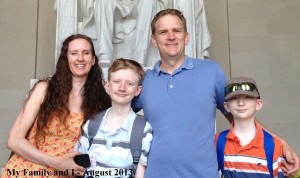Of course, this is a huge topic:
How can you most effectively and sustainably help bring about a Natural Law/Resource-Based Economy (or NLRBE)?
I say “you,” because I see this as highly personal decision. Surely, there are some general truths we would all want to take into account in designing our individual strategies. But I believe there at least as many person-specific factors.
Here is an overarching list of considerations I have come up with – some personal, some general, some a mix. I hope this general outline will help you begin to design your own personal strategy for most effectively and sustainably helping bring about an NLRBE.
- Group versus individual strategy and action: Do we strategize and act as a group? For example, do we do all of our work as a group through chapters of the Zeitgeist Movement (TZM)? Or do we strategize and act as individuals? For example, do we focus on educating the public about the NLRBE model through our own personal blogs and social networking avenues? Or do we do a little on our own and a little in groups?
- Violence versus nonviolence: The only reason I even bring up this factor, is because I know one NLRBE who worries that violence may be inevitable. I could not disagree more. For countless reasons, I believe violence would be neither inevitable, necessary, or in any way productive. I hope to go into these reasons in a future blog post.
- Protesting versus nonprotesting: That is, is our focus on marches and such, or is it channeled in other ways?
- Traditional versus lived education: Do we focus on educating people about the potential for an NLRBE, using more traditional informative methods like documentaries, social networking, public speaking, and writing? Or do we focus on traditional education, versus helping people “live,” elements of an NLRBE, versus creating actual infrastructure for a future NLRBE?
- Meanwhile, do we ourselves try to integrate NLRBE principles into our daily lives? If so, how far do we go in that effort?
Published March 28, 2014
 So I decided to experiment with a journal-style blog post series.
So I decided to experiment with a journal-style blog post series.
Why?
Our family wants an NLRBE. But, we often struggle with the question, “How can we most effectively help the world transition to an NLRBE, while still sustainably living within the monetary market system?”
Perhaps you and/or your family are struggling with this same question?
|
*Important Reminder* |
I believe the answer to this question can be different for every individual and family, since relevant circumstances vary.
Nevertheless, it helps me to read stories of specific examples of others trying to do the same things that I’m trying to do. And this is true even when my efforts will inevitably need to be a bit different, due to varying circumstances.
Another reason for this series is to enable me to post items of potential interest more often. I am very busy. But I already keep a daily journal. And I often journal on the topic of how my family, in particular, might help the world transition to an NLRBE, while sufficiently thriving in our current economy.
So, since I’m already writing on this topic, why not sometimes share edited parts of these journal entries? That way I can make the most of my time, while simultaneously helping others who enjoy examples as much as I do.
It will be an experiment, though. So it may not be something I keep up with. And, in any event, I still envision also publishing NLRBE-related posts that are more general in nature.
So, if the idea of reading about my family’s efforts to help actualize an NLRBE, while still making it in our current economy sounds interesting to you, stay tuned!
By Tiffany Clark, an activist attorney, public speaker, and author, working to help us transition to a more sustainable and equitable world. Tiffany lives and works in Sacramento, CA, with her husband, two sons, cat and dog. You can find out more about Tiffany, her activities, and her offerings, and read more of her writing, at www.tiffanyclarklaw.com.

“Dear NLRBE Diary: Introduction” by Tiffany Clark is licensed under a Creative Commons Attribution-NonCommercial-ShareAlike 4.0 International License.
